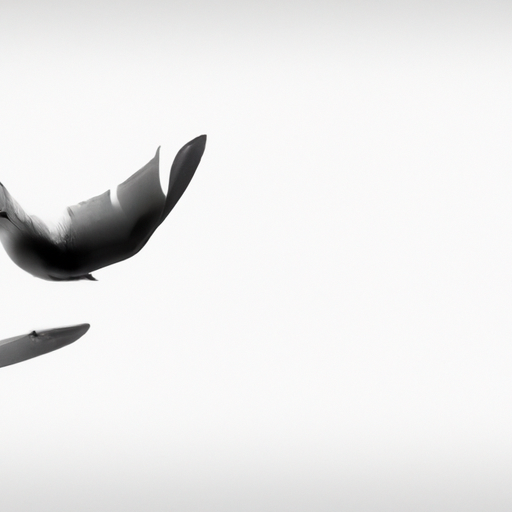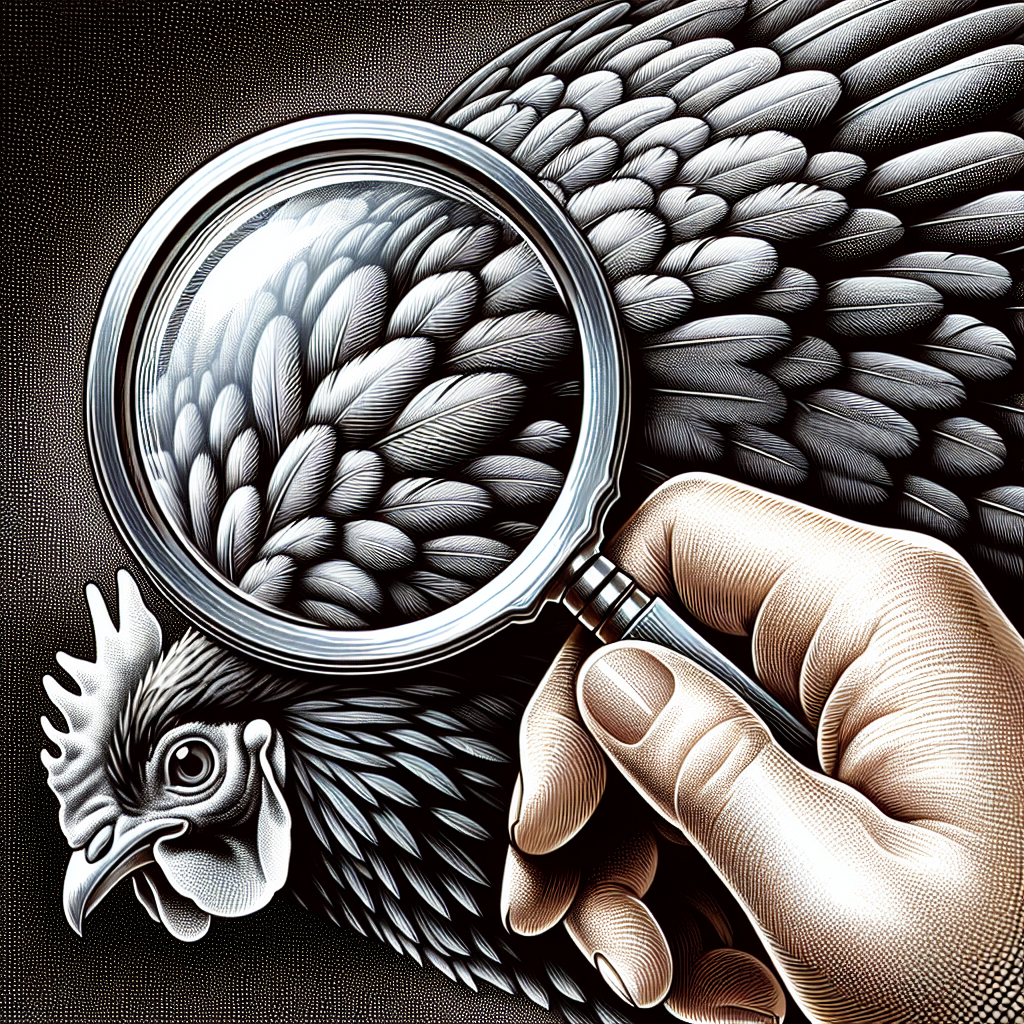Have you ever wondered how to recognize if a flock of birds is experiencing stress or discontent? In this article, we will explore the subtle signs that can indicate when a flock is not in harmonious balance. By understanding these signs, you will have a deeper appreciation for the intricacies of the avian world and be better equipped to monitor the well-being of our feathered friends. So, let’s embark on this journey together and unravel the mysteries of flock dynamics!
Physical Signs
Decreased appetite
One of the major indicators of stress or discontent within a flock is a decreased appetite. If you notice that your chickens are eating less than usual, it could be a sign that they are experiencing some form of physical or emotional distress. It’s important to monitor their food intake and consult a veterinarian if you notice a persistent decrease in appetite.
Weight loss
Weight loss in chickens can be a result of various factors, and stress is one of them. When chickens are stressed, they may lose their appetite or become too anxious to eat, leading to weight loss. If you observe a significant drop in your chickens’ weight, it’s crucial to address the underlying cause and provide appropriate care and support.
Decreased egg production
Healthy chickens typically have good egg production, so a sudden decrease in egg production can be an indication of stress or discontent. Stress can disrupt their reproductive cycle and cause them to lay fewer eggs or experience irregularities in their egg-laying patterns. If your chickens’ egg production decreases significantly, it’s advisable to assess their environment and overall well-being.
Visible signs of injury or disease
Stressed or discontented chickens may exhibit visible signs of injury or disease. These signs can include wounds, cuts, sores, or other physical abnormalities. It’s important to regularly check your chickens for any signs of injury or illness and seek veterinary attention promptly if you notice any abnormalities.
Abnormal feather loss or damage
Healthy chickens have well-maintained feathers, but when they are under stress, they may exhibit abnormal feather loss or damage. Feather plucking, excessive molting, or bald patches can be signs of stress or social hierarchy disruption within the flock. Monitoring your chickens’ feather condition is vital to ensure their overall well-being.
Behavioral Signs
Increased aggression
One of the behavioral signs of stress or discontent within a flock is increased aggression. Chickens may become more territorial, picking fights with other flock members or displaying aggressive behavior towards humans. It’s important to monitor their interactions and address any signs of aggression to maintain harmony within the flock.
Excessive vocalization
When chickens are stressed or discontented, they may exhibit excessive vocalization. This can include constant clucking, squawking, or other vocal expressions. Paying attention to the frequency and intensity of their vocalizations can give you valuable insights into their emotional state and help you identify and mitigate potential stressors.
Withdrawal or social isolation
Individual chickens may withdraw from social interactions and isolate themselves from the rest of the flock when they are stressed or discontented. They may spend more time alone, avoiding typical group activities and roosting separately. Observing any behavioral changes related to social interaction can help you identify and address potential stressors.
Increased or decreased activity level
Stressed chickens may exhibit changes in their activity level. Some chickens may become hyperactive, constantly moving around, while others may become more lethargic and show a decrease in their usual level of activity. Monitoring their overall energy levels can help you identify potential stressors and take appropriate action.
Pacing or repetitive movements
Another behavioral sign of stress or discontent within a flock is pacing or repetitive movements. Chickens may engage in pacing, circling, or pacing back and forth, indicating a certain level of restlessness or distress. Identifying such behaviors can be crucial in understanding the underlying cause of stress and devising strategies to mitigate it.
Social Signs
Social hierarchy disruption
A stressed or discontented flock can experience disruptions in their social hierarchy. Established pecking orders may be challenged or even completely overturned as a result of ongoing stressors. Paying close attention to changes in social dynamics within the flock can help you understand if your chickens are experiencing any form of social distress.
Exclusion from the flock
Stressed chickens may face exclusion or isolation from the rest of the flock. They may be chased away, bullied, or denied access to communal areas such as feeding stations or roosting spots. Social isolation can have a detrimental impact on a chicken’s mental well-being, so it’s crucial to intervene and address such situations promptly.
Lack of grooming or preening
In a stressed flock, chickens may exhibit a lack of grooming or preening behavior. Normally, chickens spend a significant amount of time grooming themselves and each other, which helps maintain cleanliness and social bonding. If you notice a decline in grooming activities within your flock, it could be a sign of stress or discontentment among them.
Visible signs of bullying or harassment
When chickens are stressed, a significant indicator is the presence of visible signs of bullying or harassment. Chickens may have peck marks, wounds, or injuries resulting from aggressive behavior from other flock members. Taking immediate action to address and prevent bullying within the flock is crucial for maintaining the overall health and well-being of your chickens.
Reduced flock cohesion
A stressed or discontented flock may experience a decrease in overall flock cohesion. Chickens may appear less synchronized in their movements, fail to exhibit collective behaviors, or demonstrate signs of disunity. Monitoring the level of flock cohesiveness can help you identify any underlying stressors and take appropriate steps to alleviate them.
Communication Signs
Changes in vocalizations
Changes in the vocalizations of chickens can provide valuable insights into their emotional well-being. Stressed or discontented chickens may exhibit variations in their usual vocal expressions, such as increased frequency, intensity, or different types of calls. Paying attention to changes in their vocalizations can help you understand their emotional state and address potential stressors.
Unusual body language
Chicken communication involves not only vocalizations but also body language. Stressed chickens may display unusual body language, such as raised feathers, standing upright, or hunching down. Observing their body language can help you gauge their level of stress and take appropriate measures to alleviate it.
Intense or prolonged staring
When chickens are stressed or feel threatened, they may exhibit intense or prolonged staring behavior. This behavior can indicate a level of fear or unease within the flock. It’s important to monitor interactions and intervene if staring becomes aggressive or leads to further distress within the flock.
Excessive pecking or aggressive nibbling
Another communication sign of stress or discontent within a flock is excessive pecking or aggressive nibbling. Chickens may engage in aggressive behaviors directed towards other flock members, resulting in visible peck marks or wounds. Identifying and addressing excessive pecking behavior is crucial to maintaining a harmonious flock environment.
Unresponsiveness to normal flock calls
If your chickens seem unresponsive to normal flock calls or fail to acknowledge each other’s vocalizations, it could be an indication of stress or emotional turmoil. When chickens are stressed or discontented, their communication with one another may become disrupted. Paying attention to their responsiveness to flock calls can help you identify potential stressors and take appropriate action.
Environmental Signs
Poor living conditions
Chickens are highly sensitive to their living conditions, and poor conditions can lead to stress and discontent within the flock. Signs of poor living conditions include overcrowding, inadequate ventilation, unclean bedding, and limited access to fresh air and natural daylight. Ensuring that your chickens have a clean and conducive living environment is key to their well-being.
Lack of space or perches
Chickens thrive in environments that provide adequate space for movement and perches for roosting. If your flock appears cramped or lacks sufficient perching areas, it can lead to stress and discomfort. Providing ample space and appropriate perching options can help alleviate physical and emotional stress within your flock.
Insufficient food or water
A lack of access to sufficient food and water can significantly impact a flock’s overall well-being. If your chickens don’t have a constant supply of fresh water or are not receiving an adequate and balanced diet, they may become stressed or discontented. Regularly assessing their food and water availability is crucial in maintaining their health and happiness.
Exposure to extreme temperatures
Chickens are sensitive to extreme temperatures, both hot and cold. Exposure to excessively high or low temperatures can cause stress, discomfort, or even heat or cold-related health issues. Providing appropriate shelter, proper ventilation, and adequate insulation can help ensure your flock is protected from extreme weather conditions.
Lack of enrichment or mental stimulation
Chickens, like any other animals, thrive when they have opportunities for mental stimulation and enrichment. A lack of environmental stimuli, such as toys, dust baths, or access to foraging areas, can contribute to boredom and stress within the flock. Providing a stimulating environment can help alleviate stress and promote healthier and happier chickens.
Health Signs
Wounds or injuries
Stressed or discontented chickens may exhibit visible wounds or injuries resulting from aggressive behavior, pecking, or accidents. Regularly inspecting your chickens for wounds or injuries is crucial to ensure prompt treatment and prevent further distress within the flock.
Respiratory issues
Respiratory issues, such as coughing, sneezing, wheezing, or nasal discharge, can indicate respiratory distress within a flock. Stress can weaken chickens’ immune systems, making them more susceptible to respiratory infections. If you notice any respiratory symptoms, it’s important to consult a veterinarian for proper diagnosis and treatment.
Digestive issues
Digestive issues, such as diarrhea, constipation, or abnormal droppings, can be signs of stress or digestive disorders within a flock. Stress can disrupt chickens’ digestive systems, leading to various gastrointestinal problems. Monitoring their droppings and observing any changes can help you identify potential digestive issues and seek appropriate veterinary care.
Changes in fecal appearance or odor
Changes in the appearance or odor of chicken droppings can indicate underlying health issues or stress within a flock. Abnormalities, such as excessively watery or discolored droppings, can be indicative of nutritional imbalances or infection. Regularly inspecting their droppings can help you identify potential health concerns and take timely action.
Evident discomfort or pain
Stressed or discontented chickens may exhibit signs of evident discomfort or pain. This can include limping, favoring certain body parts, or displaying signs of physical distress. It’s important to closely monitor your chickens for any indications of discomfort and seek veterinary attention to alleviate their suffering.
Mortality Signs
Increase in sudden deaths
A significant increase in sudden deaths within a flock is a cause for concern and can indicate underlying stress or health issues. While chickens may occasionally experience sudden death due to natural causes, a sudden surge in mortality rates should be thoroughly investigated by a veterinarian to identify and address the potential stressors.
High mortality rates
Consistently high mortality rates within a flock can be an indicator of chronic stress, disease, or poor living conditions. Monitoring the mortality rate of your flock is crucial in identifying potential stressors or health issues and taking appropriate measures to improve their overall well-being.
Presence of dead or sickly birds
The presence of dead or sickly birds within a flock is a clear indication of distress or disease. If you come across dead or visibly ill chickens, it’s important to isolate them immediately to prevent the spread of potential infections and seek veterinary assistance to determine the cause and take appropriate action.
Unexplained decline in overall flock health
An unexplained decline in the overall health of your flock can be a sign of chronic stress or underlying health issues. If you notice a general decline in the vitality, energy levels, or well-being of your chickens, it’s essential to investigate potential stressors and address them promptly.
Abnormal patterns of mortality
Abnormal patterns of mortality, such as deaths occurring at specific times or affecting specific age groups, can point to stress or disease within a flock. Paying close attention to patterns and trends in mortality rates can provide valuable insights into the underlying causes and help you implement effective preventive measures.
Feeding and Drinking Signs
Refusal to eat or drink
If you notice that your chickens are refusing to eat or drink, it can be a clear sign of stress or physical discomfort. Stress can lead to a loss of appetite or make chickens too anxious to consume food or water. Observing their feeding and drinking behavior is crucial in identifying potential stressors and addressing them appropriately.
Erratic feeding behavior
Stressed or discontented chickens may exhibit erratic feeding behavior, such as pecking at food but not consuming it fully or displaying disinterest in their usual feeding routines. Monitoring their feeding habits and addressing any changes promptly can help ensure their nutritional needs are met.
Excessive drinking
While drinking an appropriate amount of water is essential for chickens’ health, excessive drinking can be a sign of stress or underlying health issues. If you observe your chickens excessively drinking water, it’s advisable to consult a veterinarian to rule out any potential medical causes and address their overall well-being.
Abnormal food pecking or foraging
Chickens that are stressed or discontented may exhibit abnormal food pecking or foraging behavior. They may display disinterest in their regular food sources or show signs of aggression towards food or forage materials. Monitoring their feeding habits and ensuring a varied and balanced diet can help mitigate potential stressors.
Loss of interest in favorite treats
If your chickens suddenly lose interest in their favorite treats, it can indicate stress or emotional distress. Normally, chickens exhibit enthusiasm and excitement when receiving special treats or food rewards. A change in their response to treats can be an early indication of underlying stressors that require attention and resolution.
Reproductive Signs
Egg abnormalities
Stress can have a significant impact on a chicken’s reproductive system, leading to various egg abnormalities. These abnormalities can include soft-shelled eggs, abnormal shapes, or irregular laying patterns. Regularly monitoring the quality and consistency of your chickens’ eggs can help you identify potential reproductive issues caused by stress or other factors.
Infertility or poor hatch rates
Stress can cause reproductive disruptions, leading to infertility or poor hatch rates in chickens. If you are experiencing difficulties in successfully breeding or hatching chicks, it’s important to assess the potential stressors and take appropriate actions, such as ensuring a calm environment and optimal nutrition for your breeding birds.
Egg-binding or reproductive complications
Egg-binding, where a chicken is unable to lay an egg, can be a critical condition caused by stress or other factors. Reproductive complications, such as prolapse or infection, can also occur in stressed or discontented chickens. Prompt veterinary care is essential in managing such reproductive issues and ensuring the well-being of your flock.
Loss of brooding behaviors
Stress or discontentment within a flock can lead to a loss of brooding behaviors in nesting hens. Brooding behaviors involve sitting on eggs to provide warmth and support hatching. If you observe a lack of brooding behaviors in your hens, it’s important to investigate potential stressors and address them to promote healthy reproduction.
Aggression towards nesting areas or eggs
Stressed or discontented chickens may display aggression towards nesting areas or eggs. They may peck at or destroy eggs, leading to reduced hatching success and potential injury or loss of offspring. Monitoring such aggressive behaviors and ensuring the provision of appropriate nesting areas can help maintain a conducive breeding environment.
Responses to Human Interactions
Fear or avoidance of humans
Chickens that are stressed or discontented may exhibit fear or avoidance behaviors in response to human interactions. They may shy away, run, or display signs of anxiety when approached by humans. Building trust and providing positive experiences during human interactions can help alleviate stress and improve their overall well-being.
Aggression towards humans
In some cases, chickens may display aggression towards humans when they are stressed or feel threatened. They may peck, lunge, or display other aggressive behaviors. It’s crucial to handle chickens with care and respect their boundaries to minimize stress and prevent potential injuries to both chickens and humans.
Overly dependent or clingy behavior
On the other end of the spectrum, stressed chickens may display overly dependent or clingy behavior towards humans. They may seek constant attention, become excessively reliant on human interaction, or refuse to leave human presence. It’s important to encourage a healthy balance of independence and socialization to prevent excessive dependence.
Increased stress or agitation during handling
Chickens that are stressed or discontented may exhibit increased stress or agitation when being handled by humans. They may struggle, flap their wings, or become vocal during handling. Providing a calm and secure environment during handling can help reduce stress and ensure the safety of both the chickens and the handlers.
Reluctance to leave the coop or free-range
Stressed chickens may exhibit reluctance or hesitancy to leave the safety of their coop or free-range area. They may prefer to stay indoors, avoiding exposure to potentially stressful or threatening external environments. Creating a safe and enriching outdoor space can help encourage chickens to explore and engage in natural behaviors, ultimately reducing stress.
In conclusion, recognizing and understanding the signs of stress or discontent within a flock is crucial for maintaining the health and well-being of your chickens. By closely observing their physical, behavioral, social, communicative, environmental, health, mortality, feeding and drinking, reproductive, and responses to human interactions, you can identify potential stressors, take appropriate action, and ensure a harmonious and happy flock. Regular monitoring and providing a supportive environment will go a long way in promoting the overall welfare of your cherished chickens.




